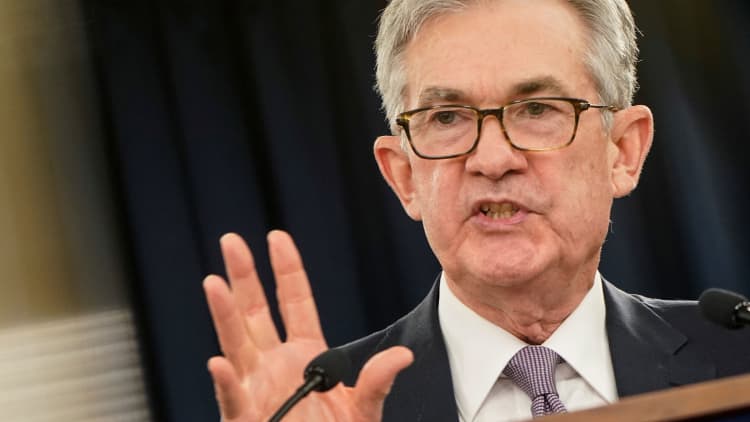
Federal Reserve Chairman Jerome Powell said Friday the central bank is monitoring the coronavirus for risks it poses to the U.S. economy and pledged action if necessary.
"The fundamentals of the U.S. economy remain strong," Powell said in a mid-day statement. "However, the coronavirus poses evolving risks to economic activity. The Federal Reserve is closely monitoring developments and their implications for the economic outlook. We will use our tools and act as appropriate to support the economy."
The actual language in the statement differs little from previous statements Powell and other Fed officials have made.
However, it comes amid a vicious decline in the stock market and worries that the coronavirus spread could jeopardize global economic growth.
The market recovered some of its losses after the Powell statement broke at 2:30 pm ET but the Dow Jones Industrial Average remained down more than 500 points.
Markets have been clamoring for the Fed to step in with rate cuts, but Powell's statement offered no assurances. Current pricing is for a 50 basis point cut at the Federal Open Market Committee's March meeting, with a total cut of 100 basis points expected by year's end.
Former Fed Governor Kevin Warsh, in a CNBC interview earlier in the day, called on the Fed to ease policy and said someone from the central bank should make a statement before the Asia market opening Sunday evening New York time. Warsh said markets are "sending a signal about the real economy."
"They might be wrong, but I'm willing to give them the benefit of the doubt and act now, because the risk-reward seems quite compelling," he said.


